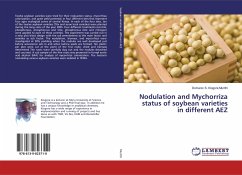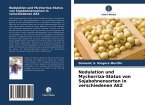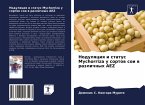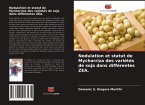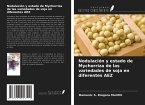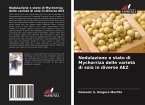Twelve soybean varieties were tried for their nodulation status, mycorrhiza colonization, and grain yield potential, in four different sites that represent four agro ecological zones of central Kenya. In each of the four sites, ten of the twelve soybean varieties (TGx and some local varieties) were planted during the long rains of the year 2005. Four different treatments (control, phosphorous, phosphorous and lime, phosphorous lime and nitrogen) were applied to each of these varieties. The experiment was carried out in a strip plot block design with the soil amendments as the main factor and varieties as sub factor. The nodulation, biomass, and mycorrhiza were investigated at 50% podding when the nodules are well developed just before senescence sets in and when before seeds are formed. Ten plants per plot were cut at the point of the first node, dried and biomass determined The roots were carefully dug out and the nodules detached and counted. A sub sample of the fine roots was preserved in formyl acetic acid alcohol (FAA) for analysis of mycorrhiza colonization. The bacteria nodulating various soybean varieties were isolated in YEMA.

